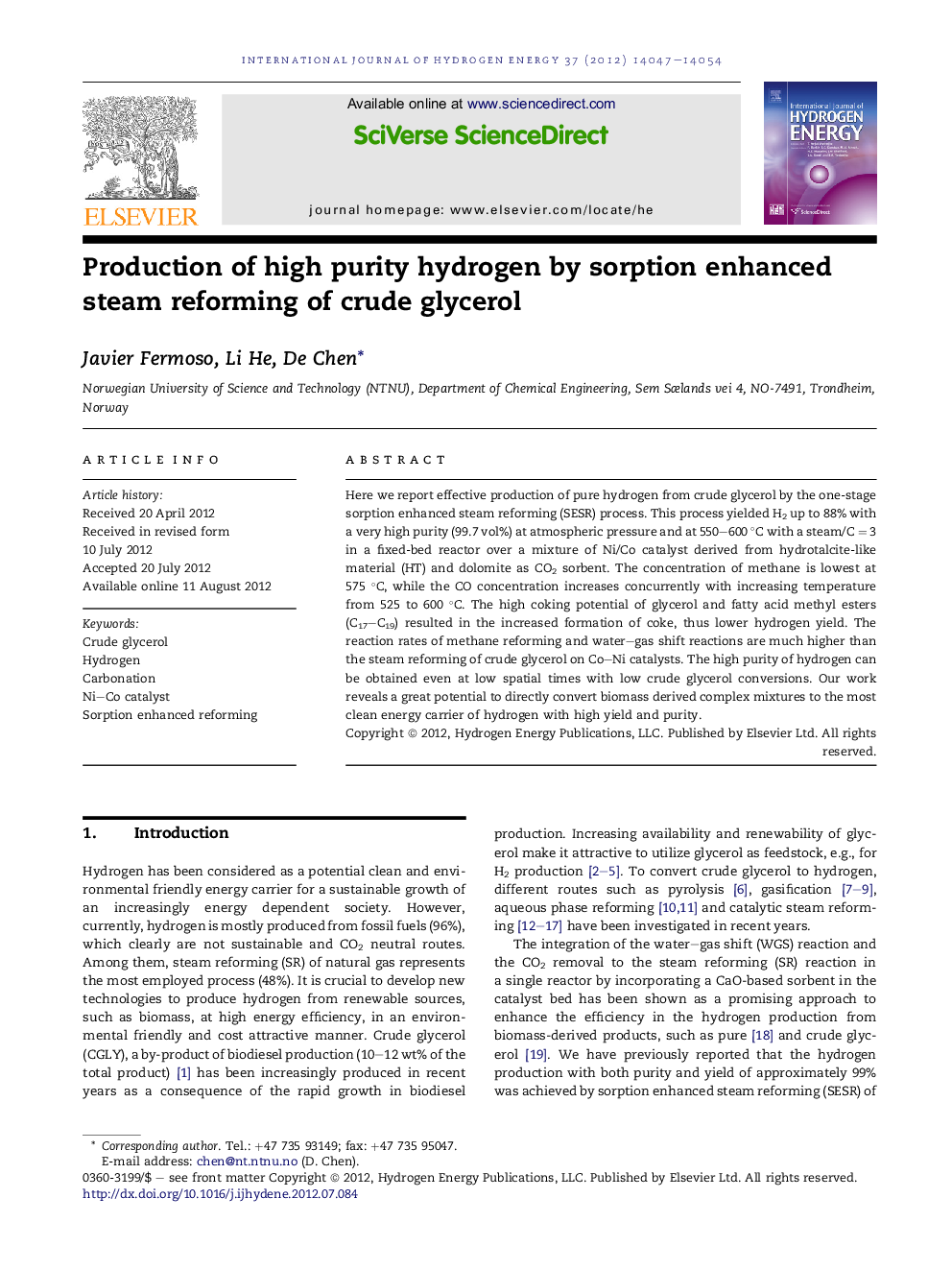| Article ID | Journal | Published Year | Pages | File Type |
|---|---|---|---|---|
| 1274747 | International Journal of Hydrogen Energy | 2012 | 8 Pages |
Here we report effective production of pure hydrogen from crude glycerol by the one-stage sorption enhanced steam reforming (SESR) process. This process yielded H2 up to 88% with a very high purity (99.7 vol%) at atmospheric pressure and at 550–600 °C with a steam/C = 3 in a fixed-bed reactor over a mixture of Ni/Co catalyst derived from hydrotalcite-like material (HT) and dolomite as CO2 sorbent. The concentration of methane is lowest at 575 °C, while the CO concentration increases concurrently with increasing temperature from 525 to 600 °C. The high coking potential of glycerol and fatty acid methyl esters (C17–C19) resulted in the increased formation of coke, thus lower hydrogen yield. The reaction rates of methane reforming and water–gas shift reactions are much higher than the steam reforming of crude glycerol on Co–Ni catalysts. The high purity of hydrogen can be obtained even at low spatial times with low crude glycerol conversions. Our work reveals a great potential to directly convert biomass derived complex mixtures to the most clean energy carrier of hydrogen with high yield and purity.
Graphical abstractFigure optionsDownload full-size imageDownload as PowerPoint slideHighlights► Pure hydrogen production from crude glycerol. ► High activity and stability of Ni–Co catalysts in conversion of glycerol. ► Higher activity of hydrocarbon reforming and WGS than glycerol reforming. ► Challenges in carbon formation reducing hydrogen yield.
